Silicon Valley "didn't think a designer could build a company" says Airbnb co-founder Brian Chesky
Interview: over dinner in an apartment inside a historic clock tower, Airbnb co-founder and CEO Brian Chesky told Dezeen how two young design graduates built the home-stay booking website that is now bigger than most hotel chains.
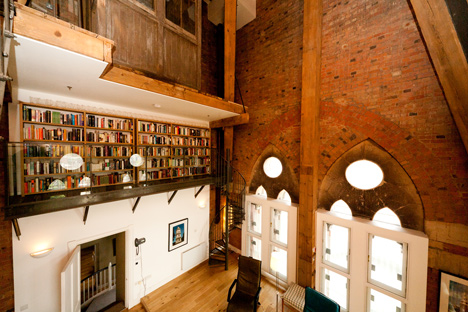
The venue, The Clock Tower apartment (main image) in Sir George Gilbert Scott's 1868 gothic revival hotel at St Pancras, is one of Airbnb's elite rental properties. Guests share the property with its owner, Peter Tompkins, who rents rooms through Airbnb for just £150 per night (although it gets booked up months ahead).
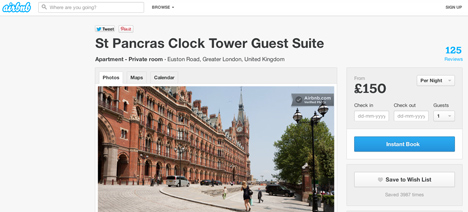
"I think this really sums up the wonderful authentic feeling you get when you're travelling," said Chesky, who founded the company with fellow Rhode Island School of Design graduate Joe Gebbia in 2008. "We've kept the feeling of being at home anywhere."
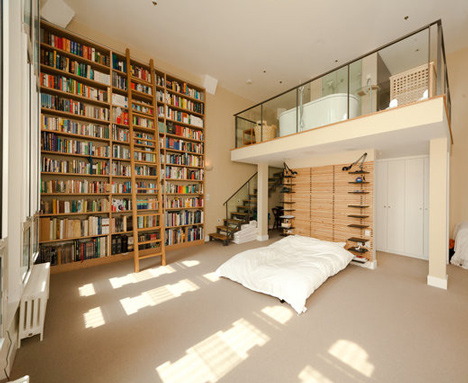
The duo had the idea for a site that would allow travellers to stay in ordinary homes instead of hotels when, short of money to pay the rent on their San Francisco apartment, they bought a couple of inflatable air beds and rented them out to attendees of a design conference in the city.
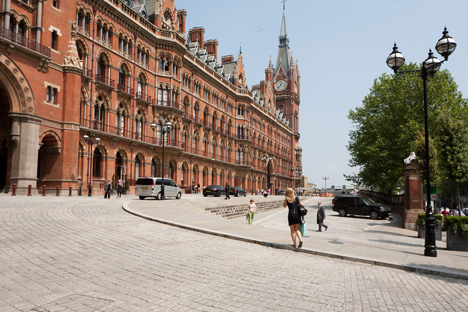
"We called it the Air Bed and Breakfast," he says. "From that weekend it's grown to where we are today, which is 252,000 people every night staying at Airbnb at peak."
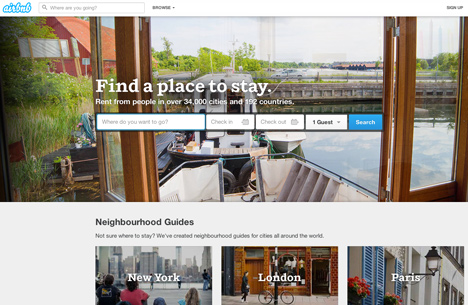
Silicon Valley didn't take the company seriously at first, partly since it was headed by designers rather than engineers - and partly because nobody thought anyone would pay to stay in someone else's home.
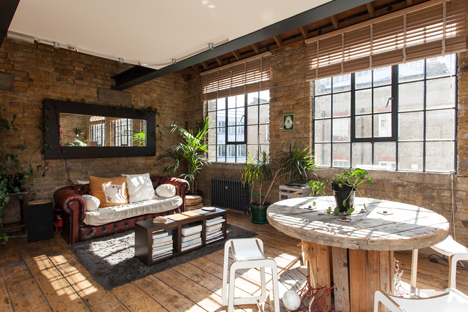
"When we came to the Valley, no one even wanted to invest in Airbnb," he says. "One of the reasons was they thought the idea was crazy. People thought: 'I'd never stay in a stranger's home. That's creepy'. But the other reason is that they didn't think a designer could build and run a company."
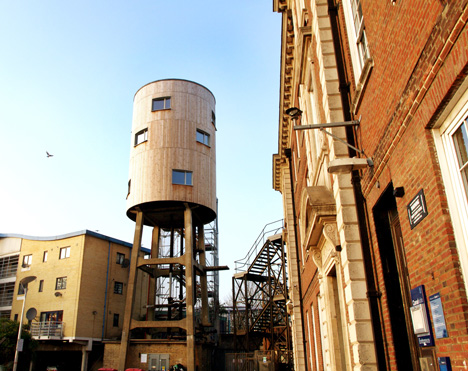
Chesky explained to Dezeen how the company won over the doubters and built a global business where "everything we do is design driven".
Images are courtesy of Airbnb.
Marcus Fairs: What is Airbnb?
Brian Chesky: Airbnb is a new way to travel and experience the world. We had this vision: what if you could book someone's home the way you could book a hotel anywhere in the world? And that's what we have today. We've kept the feeling of being at home anywhere. We're in 190 countries, that's every country but four countries in the world. Thirty-four thousand cities. You can get a home, a castle, a teepee, a treehouse, a boat. Really interesting homes. We're here in the clock tower at St Pancras station; I think this really sums up the wonderful authentic feeling you get when you're travelling.
Marcus Fairs: You're a designer. Tell us about your design background.
Brian Chesky: I grew up in New York, my parents were social workers. I know they had a lot of anxiety about me becoming a designer. My Dad wanted me to get job in health insurance one day. I ended up going to the Rhode Island School of Design [RISD] and I was very inspired when I got there because a teacher told me: "You can live in a world of your own design, you can change the world, you can redesign it." No one ever told me that growing up.
The day of our graduation, my cofounder Joe Gebbia said "Let's start a company together." I ended up moving in with him [in San Francisco] but we didn't have enough money to pay rent. I had $1,000 and I remember that rent was actually $1,150, so I couldn't pay rent.
It turns out the weekend I went there, this international design conference was coming to San Francisco. All of the hotels were sold out, so we had this idea. Why don't we turn out house into a bed and breakfast for the conference? Unfortunately we didn't have any beds, but we had air beds. We called it the Air Bed and Breakfast.
From that weekend it's grown to where we are today, which is 252,000 people every night staying at Airbnb at peak. I think part of the reason we're so successful - and it's partly luck, we've been very fortunate - is that we're from a design background. When I was at RISD, everyone talked about how design could get in the boardroom, how you could get the boardroom to listen to design, how you could influence the CEO.
But I thought: "Why should design be in the boardroom? Why can't design run the boardroom? What would happen if two designers ran a technology company? What would that be?" That could never happen before. We are that experiment played out and I hope that we're successful because of it. When we came to the Valley, no one even wanted to invest in Airbnb. One of the reasons was they thought the idea was crazy. People thought "I'd never stay in a stranger's home. That's creepy".
But the other reason is that they didn't think a designer could build and run a company. They were straight up about it. We weren't MBAs, we weren't two PHD students from Stanford. Being designers they thought we were people that worked for people that ran companies. That's what they told us. We never believed that; we thought designers were the perfect people to run a company like this. A human-centred company, built around empathy, using creativity. I thought we were the perfect people and we certainly have something to prove.
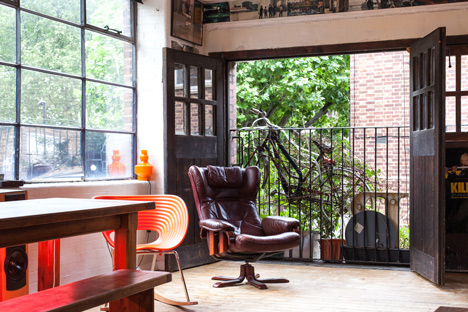
Marcus Fairs: So is Airbnb more of a design-led company than most other Silicon Valley startups?
Brian Chesky: Absolutely.
Marcus Fairs: In what ways?
Brian Chesky: We're very much a design-driven company. Everything we do is design driven, not just the products we make or how we design them. Every decision, from the board meetings we run, through how we hire people, to our office design.
We have this methodology that's called Snow White. It's inspired by the film Snow White, the feature-length animated movie. It was the first time Walt Disney created storyboards, and we did that for the trip. We storyboarded what was the perfect trip, from the time you book your trip, you leave your home. We did every frame, which in our business is the story board trip. We design it and make sure it's great every time.
We created this whole end-to-end service design system, design every part of the trip. Hotels, Expedia, booking websites, they don't do that. They typically use financial data to make their own decisions. We make decisions based on people. We do the same things with employees, how we recruit them, how they join, how we train them. We storyboard and try to design the end-to-end system. We try to see things very differently. For our office design, we redesigned meeting rooms to look like apartments because we thought meeting rooms were ugly and meetings suck.
We have really simple core values that are really like designing the culture. I think there's a lot of intent around things that before us, there weren't a lot of intent around. And they weren't considered from a human basis. Typically they were done from a financial basis.
Marcus Fairs: How is the hotel world reacting? I heard a rumour tonight that they're getting a bit defensive.
Brian Chesky: Well we're as big as they are now so there's a little bit of angst to them. But I think I can't yet generalise the whole hotel industry and I think it's because a lot of people have a lot of different views. Some are trying to figure out what we are. I was just in Davos [for the World Economic Forum] and met with a couple of CEOs of large hotel chains. They were actually really friendly and one of them said: "We don't know what to think about you yet, how should we think about you?" and another said "We don't actually think of ourselves as competitors with you." But I heard off the record that another one does think we're a competitor and has some concerns. So I can't really generalise, they all have different views.
But I don't think we're as much competitors as people make us out to be. Most hotels make all their money in business travel. There's not a lot of profit for them in ordinary people. We're the other way around; we have some business travel but most people on Airbnb are using it for vacation.
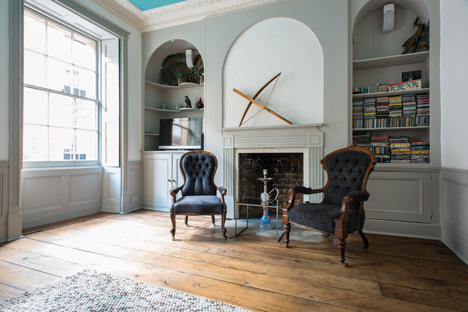
Marcus Fairs: We've seen over the last few years the rise of design hotels, boutique hotels, design filtering into the hospitality industry but do you think that's just a bit superficial? You're talking about designing the whole trip experience rather than just the lobby or the room.
Brian Chesky: I think there's two things there. The first is that I ask myself: "If the internet was around 100 years ago, what would it look like today?" My conclusion is that it would look a lot like Airbnb or be more of a home. I think home design has been an amazing thing that's lived on for generations, and we kind of celebrate existing home design. I think home design is more authentic than hotel design and I think the idea of home is just more authentic. It's not manufactured to simulate something, it's got to be authentic because it has to be there year round. So it's got to be honest.
I also think that we think about designing the entire trip experience, like Snow White. That entire end-to-end storyboard. We've come out with some things, some things haven't come out yet. We're really thinking about every frame.
Marcus Fairs: Give us some examples of how you've improved the sequence in the storyboard of a trip for travellers.
Brian Chesky: Most of my examples are things we're coming out with this year. I can give you 100 examples but unfortunately we haven't announced any yet. I guess our app... with a lot of hotels and a lot of booking sites, their app and how you book is a bit of an afterthought. We design every part of the experience. We even thought about when you get off a plane at the airport, how you pull up your itinerary, how you would check in. The whole app was designed for someone who is a traveller and using it while travelling. A lot of sites, the don't really think about the use case.
Marcus Fairs: There's that scenario with conventional travel where you have to print off all these different bits of paper the night before you leave...
Brian Chesky: We have an app that's super consumable, it's super easy to use and these are just some of the basic things. Let me give you another example: the host site [where people offering their apartments for rent on Airbnb upload and manage their details]. We were looking at the storyboard of a host and we realised that parts of it were really hard. One part that was really hard was taking photographs of your home. So we created this network of 4,000 to 5,000 professional photographers. You click a button and a photographer will come and photograph your home for free.
This is something that we never would have considered had we not been designers. But we put ourselves in the shoes of the user and realised how hard this was. Then we thought "What would magical feel like?" and that's how we approach design problems.
So here's a great design lesson that we learned. We had a mentor who said: "Brian, it's better to have 100 people love you than a million people sort of like you." To create the perfect experience for one person and then scale that; work backwards. A lot of companies don't do that; a lot of companies make a small tweak for everyone, measure it, make another small tweak and get that out and measure again. You keep turning dials, kind of arbitrarily, hoping you get a good signal. We said "Let's just design something from the ground up for one person, make it as great as possible and then scale it." That's how we came up with a lot of our concepts. We designed the end-to-end system for a small number of people and scaled it.
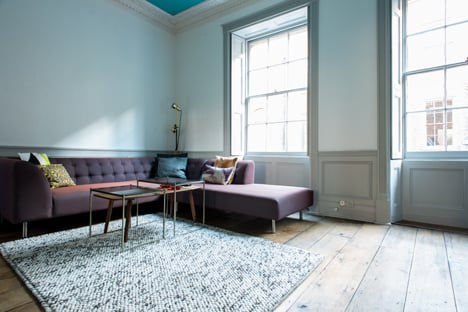
Marcus Fairs: You were saying earlier that Silicon Valley doesn't take designers seriously.
Brian Chesky: When I got to Silicon Valley they were not taken seriously.
Marcus Fairs: Is that changing then? There's Apple, there's fuseproject... Is there a culture change going on?
Brian Chesky: Well Apple was successful in 2007 when I got to the Valley. Their value wasn't higher than Google or Microsoft then. Engineering was considered what made the most valuable companies. Apple's a funny case. Now people in the design community see Apple as a design-driven company. In technology, a lot of people didn't think it was design, they just thought of Steve Jobs as a God. They'd go: "Oh it's because Steve Jobs is a visionary, that's why Apple's successful." And I said: "No, he's just a great designer."
But we had totally different views on it and now you have a lot of young startups - us, Pinterest, Square, SoundCloud - all these companies are really well designed, so I think it's changing. I think more and more the experience and the design of the system and product are becoming the epicentre for the user experience. I think they're really important right now. I would like to think we played a very small part in shifting that narrative and sentiment, and giving a bit more visibility to designers.